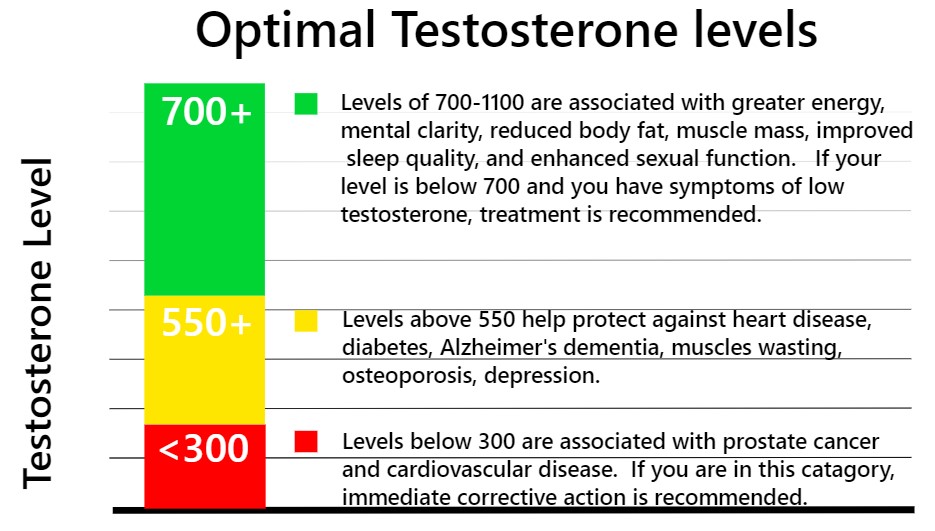Men’s Health
Empowering MEN to Improve Their Lives
We are dedicated to providing men with real, personalized, and effective solutions for a healthy lifestyle that works with both your schedule and budget. Our experts will tailor plans specific to your needs so you can live your life to the fullest.
Biote Hormone
Replacement Therapy
The hormones used in Biote’s Method of BHRT are delivered to men in pellet form, and within up to two to four weeks, patients may begin to feel hormone therapy benefits. Some report feeling the full benefits after their second insertion. Hormone therapy has helped numerous men regain their hormone balance. Studies have shown, hormone replacement therapy may help relieve the symptoms of a hormone imbalance in men and may include:
- Fatigue
- Weight gain
- Loss of muscle mass
- Brain fog
- Decreased sexual performance
- Low mood
- Anxiousness
- And more
Biote Hormone
Replacement Therapy
BHRT stands for bioidentical hormone replacement therapy, the type of therapy Biote Certified Providers use. Bioidentical is used to convey that the molecular structure is the same as the hormones produced by the human body. Men who lack hormones at certain consistent levels or who have too much of a certain hormone may benefit from BHRT for men.
Your sexual function and satisfaction also depend on testosterone. Decreasing levels can lead to low libido and erectile dysfunction.
The hormones used in Biote’s Method of BHRT are delivered to men in pellet form, and within up to two to four weeks, patients may begin to feel hormone therapy benefits. Some report feeling the full benefits of BHRT after the second insertion. Hormone therapy has helped numerous men regain their hormone balance and optimize their testosterone levels.
Biote utilizes pellet therapy that contains bioidentical hormones custom compounded in pharmacies within the US. These pellets are inserted subcutaneously in the body and provide continuous therapeutic support for many conditions that men face.
Pellets are made of custom-compounded hormones and binders. The hormones are compounded in the U.S. by outsourcing facilities that are held to strict standards. Each pellets manufactured is tested for potency, sterility, and endotoxins to ensure patients are being provided with high-quality pellet therapy for men to help their hormone optimization.
Many conditions may be improved in men through pellet therapy, including andropause, low mood, anxiousness, low sex drive, decreased bone density, and heart health.* Pellet therapy benefits for men may include the relief of symptoms caused by these conditions, as well as a return to hormonal balance.
Hormone Balancing
Hormonal imbalances occur when there is too much or too little of a hormone in the bloodstream. Because of their essential role in the body, even small hormonal imbalances can cause side effects throughout the body. Hormones are chemicals that are produced by many different glands in the body.
Hormonal imbalances cause many troublesome symptoms such as fatigue, weight gain, depression, loss of libido, loss of muscle mass, poor sexual performance, cognitive impairment and poor sleep. There are many other symptoms but these are a few. At Brazilat Aesthetics, we use only bio-identical hormones for balancing and enhancement.
Hormone Balancing
- Hot Flashes
- Night Sweats
- Decreased Energy Levels
- Fatigue
- Decreased Sex Drive (Libido)
- Weight Gain
- Bloating
- Difficulty Sleeping (Insomnia)
- Irritability and Mood Swings
- Anxiety
- Depressed Mood
- Loss of Muscle Mass, Tone or Strength
- Poor Concentration
- Declining Memory
- Vaginal Dryness and Pain with intercourse
- Nervousness
- Tender or Fibrocystic Breasts
- Urinary Incontinence
- Endometriosis
- Fibrosis
- Thinning of Head Hair
- Excess Facial or Body Hair
- Heavy, Painful or Irregular Periods
- Polycystic Ovarian Syndrome (PCOS)
- Acne
- Decreased or Loss of Fertility
- Premenstrual Syndrome
- Recurrent urinary tract infections
- Dry mouth
Hormonal deficiencies due to aging, stress, medications or lifestyle.
Minimal depending on method of treatment.
Most people have a vast improvement of their symptoms lasting 2-8 months. Variations in results happen and are often due to titrations in dosing requirements which will be discussed at time of follow-up appointments.
Vitamin B Injections
As a routine health booster, a B complex injection can immediately top up the levels of eight different nutrients. In turn, this can improve your mental clarity, increase your energy levels, and bring back the healthy skin of 10 years ago.
But how can this be achieved with a simple injection? The truth lies in the “complex” nature of B-complex vitamins and the domino effects they have on health.
What is vitamin B complex?
The B group of vitamins is a group of eight water-soluble vitamins:
- Vitamin B1 or thiamine, which helps the body break down carbohydrates and amino acids during digestion. It is also an antioxidant.
- Vitamin B2 or riboflavin, which the body uses to kickstart energy production and other metabolic processes.
- Vitamin B3, also known as niacin or nicotinamide, which helps carry energy between the brain and body.
- Vitamin B5 or pantothenic acid, which helps us build other proteins throughout the body.
- Vitamin B6 or pyridoxine, which helps regulate glucose levels, hair and nail growth.
- Vitamin B7 or biotin, necessary for turning fat cells into energy.
- Vitamin B9, often called folate or folic acid, which the body uses when growing and dividing cells, especially when pregnant.
- Vitamin B12, or cobalamin, is needed to make red blood cells, which bring oxygen to every cell of the body – including the brain.
How vitamin B complex helps the body
Literal treatises have been written about the complex interactions between vitamins, body enzymes, and hormones. A single type of B vitamin can be a “precursor” for another hormone, which then ends up in your cardiovascular or immune system.
This is all happening at the cellular level, away from our eyes! As a result, the health benefits of B vitamins can affect almost every system of the body.
For example, vitamin B complex and skin regeneration are tightly linked. Four different B vitamins contribute to the production of collagen, which is necessary to heal wounds and stave off the effects of aging.
Who needs B complex vitamins the most?
Nowadays, severe deficiencies such as pellagra are rare, at least in the United States. Food is plentiful and fortified cereals are everywhere! So then, why is there a market for B12 injections in Beverly Hills?
Turns out, many people are still suffering from what we call “subclinical deficiencies” – that is, nutrients that are lacking just slightly, enough to make us feel out of sorts, but not dramatic enough that a family practitioner can easily detect them.
People at extra risk of developing these minor deficiencies include:
- Anyone with chronic digestive problems, such as irritable bowel syndrome (IBS), because they may not be absorbing many nutrients
- People over 60, who progressively lose the ability to absorb some nutrients
- People who have had a gastric bypass (weight loss surgery)
- People taking other medications for cholesterol or diabetes, which can interfere with food absorption
- Vegetarians and vegans generally have a harder time eating enough vitamin B12
- People with celiac disease, or who follow a grain-free or gluten-free diet, will miss on the artificial fortification we now rely upon
Low Testosterone
Testosterone plays a critical role in sexual arousal, fat distribution, and muscle mass development. If you’re struggling with the effects of low testosterone levels, we can help target your hormone decline with the most effective treatments at our office in the Sherman Oaks area.

Low Testosterone
Low testosterone occurs when your testicles don’t produce enough of the male sex hormone. Testosterone is essential for sperm production and helps develop many typical male characteristics, such as facial hair, muscle mass, and endurance.
Your sexual function and satisfaction also depend on testosterone. Decreasing levels can lead to low libido and erectile dysfunction.
Low testosterone can influence many of your bodily functions and physical features, including:
- Erectile dysfunction
- Reduced muscle mass
- Thinning hair
- Loss of body hair
- Fatigue
- Increased abdominal fat
- Low libido
Many men also experience mood changes with low testosterone. Irritability, depression, and low self-esteem are telltale signs that your hormone levels are declining.
Testosterone levels peak around age 18 or 19 and slowly decline through adulthood. Most men expect a gradual drop, but too little testosterone can diminish your quality of life.
Dr. Fazilat uses advanced diagnostics to uncover the cause of your low testosterone. Common causes include:
- Medications such as corticosteroids and opioids
- Hormone disorders
- Pituitary gland dysfunction
- Testicular injuries
- Chemotherapy
- Genetic conditions
- Alcohol or drug use
Hypogonadism is a condition that causes the testicles to produce little to no testosterone. If you have hypogonadism, Dr. Gonzalez can create a treatment plan that restores your hormone levels.
Replacing your hormone levels is essential if you have low testosterone. Dr. Fazilat specializes in testosterone replacement therapy to relieve symptoms of low T. Testosterone pellets contain hormones formulated specifically for your imbalance.
After designing your treatment with bloodwork, urinalysis, and other testing services, Dr. Fazilat places your pellet. He makes a small incision in the skin above your buttocks and inserts the rice-sized pellet.
Over the next few months, the pellet releases a steady stream of testosterone to address your symptoms. Dr. Fazilat monitors your progress and reassesses your treatment plan after six months to one year. Depending on your results, he may recommend continuing or adjusting your treatment.
male menopause
The term “male menopause” has been used to describe decreasing testosterone levels related to aging. But aging-related hormone changes in women and men are different.
In women, ovulation ends and hormone production plummets during a relatively short period of time. This is known as menopause. In men, production of testosterone and other hormones declines over a period of many years and the consequences aren’t necessarily clear. This gradual decline of testosterone levels is called late-onset hypogonadism or age-related low testosterone.
Recognizing low testosterone levels
A man’s testosterone levels decline on average about 1% a year after age 40. But most older men still have testosterone levels within the normal range, with only an estimated 10% to 25% having levels considered to be low.
Low testosterone levels in older men often go unnoticed. Testosterone levels can be checked by a blood test, but tests aren’t routinely done. And many men who have low testosterone levels experience no symptoms. In addition, the signs and symptoms associated with low testosterone aren’t specific to low testosterone. They can also be caused by a person’s age, medication use or other conditions, such as having a body mass index of 30 or higher. Still, signs and symptoms suggestive of low testosterone include:
- Reduced sexual desire and activity
- Decreased spontaneous erections or erectile dysfunction
- Breast discomfort or swelling
- Infertility
- Height loss, low trauma fracture or low bone mineral density
- Hot flushes or sweats
Other possible symptoms include decreased energy, motivation and confidence, depressed mood, and poor concentration. It’s also possible to experience increased sleepiness, sleep disturbances, mild unexplained anemia, reduced muscle bulk and strength, and increased body fat.
Experts recommend only testing older men for low testosterone if they have signs or symptoms. If an initial test shows low testosterone, the test should be repeated to confirm the results. If low testosterone is confirmed, further testing of the pituitary gland is recommended to determine the cause and rule out other hormone deficiencies. The pituitary gland is a kidney-bean-sized gland situated at the base of your brain. It is part of your body’s endocrine system, which consists of all the glands that produce and regulate hormones.
Treatment recommendations for older men with low testosterone
Recommendations on testosterone therapy for men with age-related low testosterone vary. In 2020, the American College of Physicians recommended that doctors consider starting testosterone treatment in men with sexual dysfunction who want to improve their sexual function, after explaining the risks and benefits. In 2018, the Endocrine Society recommended testosterone therapy for men with age-related low testosterone who have signs and symptoms associated with low testosterone.
Some experts also recommend offering testosterone treatment to men with age-related low testosterone without the presence of signs or symptoms.
If you choose to start testosterone therapy, your doctor will explain the different ways testosterone can be administered, target levels and follow-up testing.
For some men, testosterone therapy relieves bothersome signs and symptoms of testosterone deficiency. For others, the benefits aren’t clear and there are possible risks.
Though further research is needed, testosterone therapy might stimulate growth of metastatic prostate and breast cancer. Testosterone therapy may also increase the risk of heart attack and stroke and contribute to the formation of blood clots in the veins.
Your doctor will likely recommend against starting testosterone therapy if your fertility is important in the near future or if you have conditions such as breast or prostate cancer, untreated severe obstructive sleep apnea, uncontrolled heart failure or thrombophilia, or if you’ve recently had a heart attack or stroke.
If you think you might have low testosterone, talk to us about your signs and symptoms, testing, and possible treatment options.We can help you weigh the pros and cons of treatment.
Medical Weight loss
Medical weight loss through prescription medications can be used to treat obesity in overweight adults in a variety of ways. Some medications will make you feel full sooner or less hungry, reducing the amount of food consumed daily. Other medications will change how your body absorbs fat from foods, successfully helping you lose fat.
Medical Weight loss
These medications are typically reserved for medically obese or overweight people who may be experiencing health problems due to their weight. Your provider will conduct a thorough medical history before prescribing.
Noticeable benefits of actual weight loss may include the lowering of blood sugar and blood pressure. There can also be a reduction in significant health concerns like joint pain, breathing problems, and insomnia.
The duration of treatment will depend on whether or not it is effectively assisting with weight loss. If there are no side effects, the treatment may continue for an extended period of time. However, if the weight loss is not significant or there are side effects, then the treatment may be discontinued. Regardless of how long the treatment continues, lifestyle changes need to be permanent to maintain the weight loss or continue losing weight.
After you stop taking your medication, there may be a bit of weight gain. This is why it is important to develop and maintain healthy habits during treatment, like eating the right foods and increasing exercise.
Weight loss medications are a consideration for those who have been unable to lose weight by diet and exercise alone.
Qualifications may include:
- Have a BMI of greater than 30
- BMI is greater than 27 along with medical conditions
IVF hydration
IV fluid hydration is a treatment most commonly used in hospitals to treat severely dehydrated patients. The treatment involves the insertion of an IV (intravenous line) into the patient’s arm. Then, rehydrating fluids will be injected into the IV line and circulate directly into the patient’s bloodstream.
Doctors use IVs for rehydration because they allow the fluids to go directly into your bloodstream, bypassing the wait time that occurs when you drink fluids. IV fluids usually also include electrolytes which also help to speed up the recovery time and replenish the body’s fluid supply.
When Do You Need IV Fluid Hydration?
IV fluids are usually used in cases of severe dehydration. For example, children who contract the flu may end up losing fluids from diarrhea and vomiting. If the dehydration is severe enough, it may be safer to rehydrate via IV, as opposed to drinking lots of fluids.
Dehydration isn’t just a problem in children, though. It can happen in adults, too.
Mild dehydration can cause an increased desire to drink, headaches, light-headedness, nausea, and fatigue. If the dehydration gets bad enough, it can lead to unconsciousness, so it’s important to keep track of your fluid intake throughout the day.
Immune Booster IV hydration
Healthy nutrition is essential for maintaining a strong immune system. Although a well-balanced diet can provide you with many necessary vitamins and minerals, the ability to absorb nutrients from food decreases with age.
Taking vitamin supplements is not always sufficient, since only a limited amount can be processed by the body. What’s more, supplements can be harmful if taken in high doses.
The best way to make sure you’re getting all the nutrients you need is immune boost IV therapy. IV immune boosters are specifically designed to support your immune system with valuable vitamins, minerals, and amino acids.
These nutrients are delivered directly into your bloodstream. Because immune booster infusion completely bypasses the digestive system, no nutrients will be lost as they break down in your body.
Taking immune boosters intravenously can help with:
- Increasing your energy levels
- Combatting tiredness and fatigue
- Restoring hydration
- Preventing seasonal illnesses
- Accelerating recovery from cold and flu
- Preparing your body for medical procedures
- Relieving seasonal allergies
- Healing wounds
- Recovery from injuries.
Ozempic®
Lowering A1C is an important part of managing type 2 diabetes. But so is managing your potential risk of major cardiovascular (CV) events if you also have known heart disease, and also losing some weight. Ozempic®, along with diet and exercise, is proven to improve blood sugar in adults with type 2 diabetes. In adults with type 2 diabetes and known heart disease, Ozempic® reduces the risk of major cardiovascular events such as stroke, heart attack, or death.

Aesthetic care customized for you
Looking for personalized aesthetic care? Get in touch with us today to schedule an appointment.

